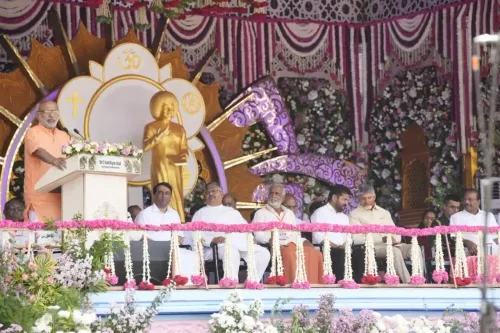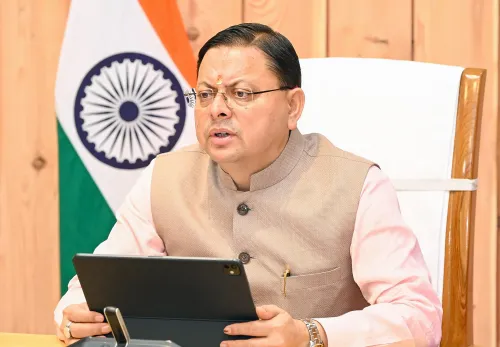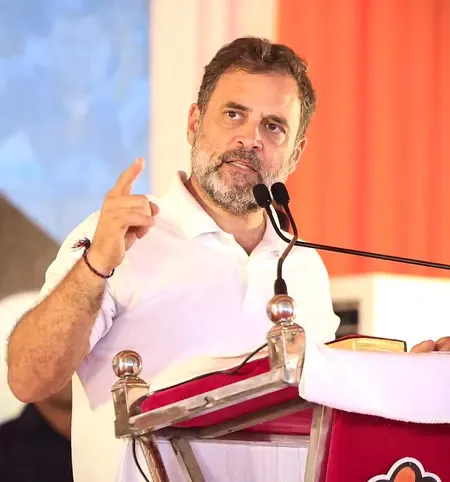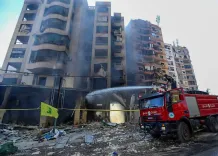Did Pakistan Launch Multiple Missile and Drone Attacks? Indian Army Responds Effectively!
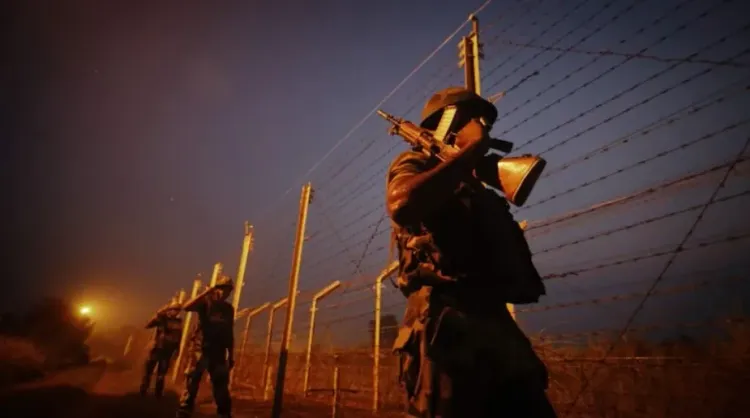
Synopsis
Key Takeaways
- Pakistan launched multiple drone and missile attacks.
- Indian Army successfully repelled the attacks.
- All measures taken were in line with standard operating procedures.
- The conflict underscores the ongoing tension in the region.
- India remains committed to its national security and integrity.
New Delhi, May 9 (NationPress) The Armed Forces of Pakistan initiated a series of assaults utilizing drones and various munitions along the entire Western border during the night of May 8-9, as reported by officials from the Indian Army.
In addition, Pakistani troops engaged in numerous ceasefire infringements (CFVs) along the Line of Control in Jammu and Kashmir.
The attempts involving drone assaults were successfully repelled, and an appropriate response was delivered to the CFVs, as stated by the Indian Army.
The Indian Army remains unwavering in its commitment to protect the nation's sovereignty and territorial integrity.
All malicious intentions shall be met with force, the Indian Army emphasized.
On Thursday night, India thwarted an attempt by Pakistan's military to target military installations in Jammu, Pathankot, Udhampur, and other areas.
New Delhi's counteraction not only obliterated drones and missiles but also brought down Islamabad's Airborne Warning and Control System (AWACS) aircraft, delivering a substantial hit to Pakistan's air surveillance and battlefield coordination.
Amid escalating tensions, the Indian Armed Forces effectively neutralized a large-scale drone and missile assault launched by Pakistan aimed at several military stations in Northern and Western India, including Jammu, Pathankot, and Udhampur, according to the Headquarters Integrated Defence Staff (HQ IDS).
In a post on X, the HQ IDS stated: "Military stations in Jammu, Pathankot, and Udhampur, located near the International Boundary in Jammu & Kashmir, were targeted by Pakistan using missiles and drones. No losses occurred. The threat was neutralized by the Indian Armed Forces as per standard operating procedures with both kinetic and non-kinetic means."
The renewed provocations and intensified artillery fire by Pakistani forces along the Line of Control and the International Border in Jammu and Kashmir, Punjab, and Rajasthan followed India's assault on Thursday morning targeting Pakistani air defense systems in several cities, including one in Lahore that was "neutralized".
The swift and resolute Indian military response neutralized the threat using standard operating procedures (SoP) involving both kinetic and non-kinetic methods.
As reiterated by the Ministry of Defence, any attack on Indian military sites will result in a "suitable response". Foreign Secretary Vikram Misri mentioned that it is up to Pakistan to decide whether to de-escalate tensions with India, following New Delhi's reaction to the "initial escalation" prompted by the Pahalgam massacre.
Blackouts across several cities and towns in Jammu and Kashmir, Punjab, and Rajasthan were enforced as drones were observed crossing the border.
Colonel Sofiya Qureshi, during a Ministry of External Affairs press briefing, confirmed that India's Integrated Counter-UAS Grid and Air Defense systems successfully countered the attacks.
"This morning, the Indian Armed Forces targeted air defense radars and systems at various locations in Pakistan. The Indian response has matched Pakistan's in both domain and intensity. It has been reliably learned that an air defense system in Lahore has been neutralized," Colonel Qureshi stated.
She further detailed that during the night of May 7 to May 8, Pakistan attempted to strike military targets at multiple locations, including Awantipura, Srinagar, Jammu, Pathankot, Amritsar, Kapurthala, Jalandhar, Ludhiana, Adampur, Bathinda, Chandigarh, Nal, Phalodi, Uttarlai, and Bhuj.
However, India’s robust air defense systems thwarted all attempted incursions, with debris from intercepted drones and missiles being recovered from several locations, confirming the attacks.
The missiles were directed at critical sites, including Satwari (Jammu Airport), Samba, R.S. Pura, and Arnia, according to defense sources.
A sudden power outage plunged Jammu city into darkness following two loud explosions, likely caused by the interception of intruding drones. Immediately thereafter, sirens blared throughout the city, urging residents to seek shelter.
Massive explosions were reported in Jaisalmer, and a blackout was imposed in western Rajasthan districts bordering Pakistan, resulting in complete darkness across the area, as reported by police.
This escalation followed India’s launch of Operation Sindoor, which involved a series of precise strikes on nine terrorist camps located in Pakistan and Pakistan-Occupied Kashmir (PoK) in response to the April 22 terrorist attack in Pahalgam that claimed 26 lives.
"Our actions have been focused, measured, and non-escalatory. No Pakistani military facilities were targeted. India has shown significant restraint in selecting targets and execution methods," stated the Ministry of Defence on Wednesday.
At the media briefing on Thursday, Colonel Qureshi reiterated that on May 7, India had clearly stated that any attack on Indian military assets would provoke a "suitable response".
Following Operation Sindoor, the Union government convened an all-party meeting on Thursday at the Parliament Annexe to brief political leaders on the security situation and India’s calibrated military actions.
Union Defence Minister Rajnath Singh led the briefing, attended by Union Home Minister Amit Shah, BJP President J.P. Nadda, Congress President Mallikarjun Kharge, and Leader of the Opposition in Lok Sabha Rahul Gandhi, among others.
Foreign Secretary Vikram Misri, Colonel Sofiya Qureshi, and Wing Commander Vyomika Singh also spoke at the press conference following the all-party meeting.


